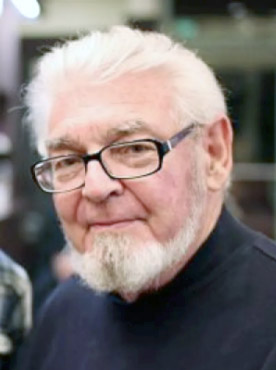Carl Harris
Carl Vernon Harris (born in Jennings, Louisiana; died May 14, 2018 in Santa Barbara, California) was a historian. He was the author of two important books of Birmingham history, Political Power in Birmingham, 1871-1921, published in 1977, and Segregation in the New South: Birmingham, Alabama, 1871–1901, published posthumously in 2022.
Carl, the son of Glann and Ethel Harris of Jennings, Louisiana, grew up with two younger siblings on the family's rice farm. His father was a minister in the Church of the Brethren, and his mother was music director. In accordance with the Brethren's pacifism, he registered with the draft board as a conscientious objector.
Harris attended McPherson College and later studied for a year at Yale Divinity School before relocating to Hamburg, Germany for two years as a member of the Brethren Volunteer Service, which was supporting youth organizations during the post-war period. He met his wife, Judy, through that organization and married her after returning to the United States. He returned to college as a graduate student in history at the University of Wisconsin–Madison. He completed his Ph.D. in 1968 and relocated to Santa Barbara, California to join the faculty of the history department at the University of California–Santa Barbara.
Harris remained at UCSB for his entire career, specializing in Southern history with a focus on race relations and political alignments between the Civil War and Civil Rights Movements. He is known for two major books relating to Birmingham history. The first, published in 1977 by the University of Tennessee Press, focuses on political developments in the first 50 years of the industrial center of the Reconstruction South. The second, completed and edited by W. Elliot Brownlee after Harris' death, investigates the establishment and experience of racial segregation in the city over the same period.
Harris was recognized as an innovator in using computer databases for analysis of congressional voting records and other large data sets. He applied a multi-disciplinary approach to analyzing housing and school segregation with the tools of social psychologists and geographers as well as historians. His work was often critical of the biases of other historians of the period.
Harris continued his research and writing after his retirement as a professor emeritus. He was involved in numerous Academic Senate committees and otherwise engaged in campus politics, as well as softball and tennis in his younger years. Later he competed in card games and performed with the Santa Barbara Oratorio Chorale.
He and Judy had two children, David and Susan. He was later married twice more, to Sung-in Ch'oe and to Lisha Wong Harris.
Harris died in 2018.
Publications
- Harris, Carl V. (1977) Political Power in Birmingham, 1871-1921. Twentieth-Century America Series. Knoxville: University of Tennessee Press. ISBN 087049211X
- Harris, Carl V. & W. Elliot Brownlee, ed. (1977) Segregation in the New South: Birmingham, Alabama, 1871–1901. Louisiana State University Press. ISBN 9780807178379
References
- "Carl Harris" (May 21, 2018) Santa Barbara Independent
